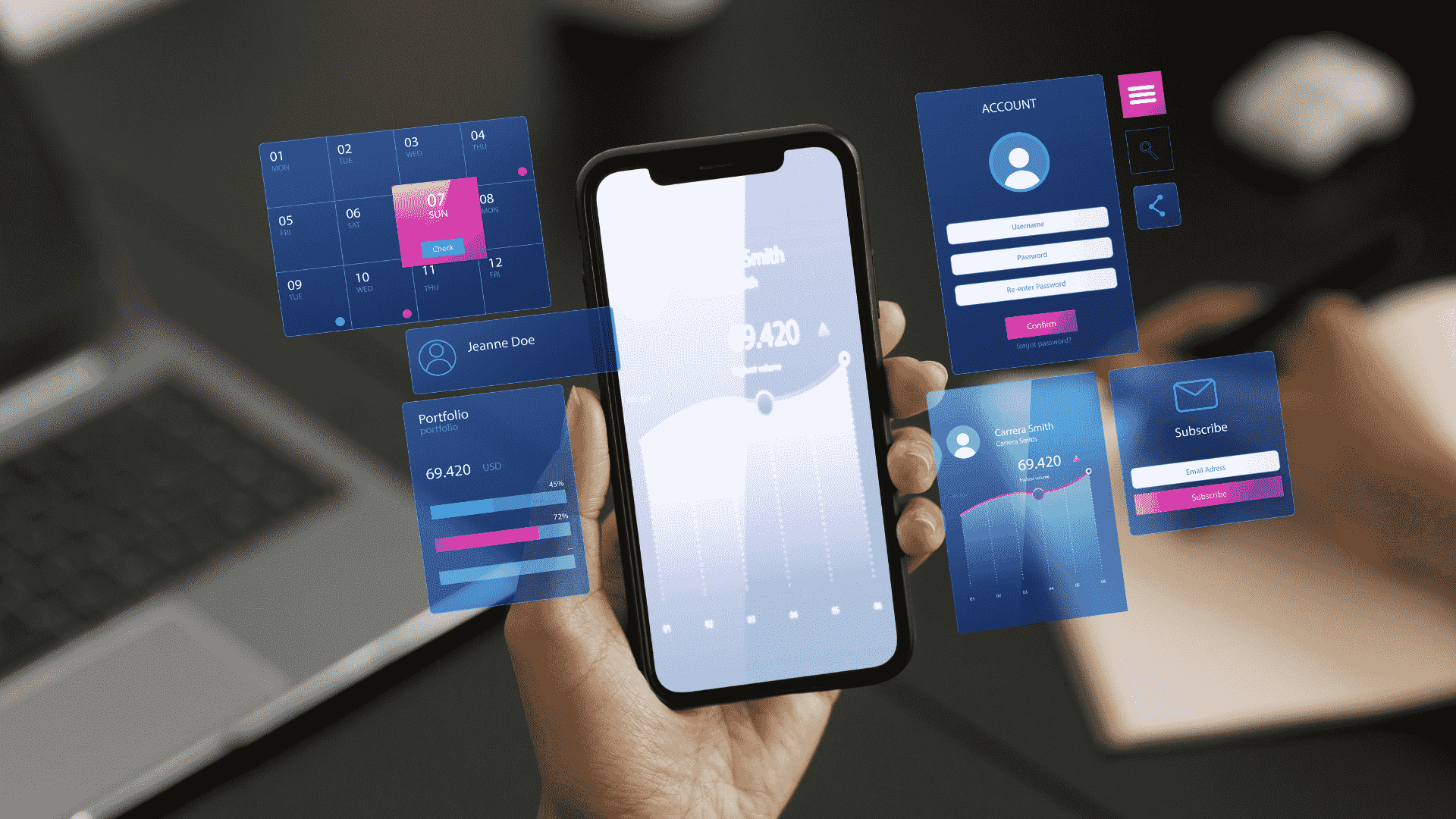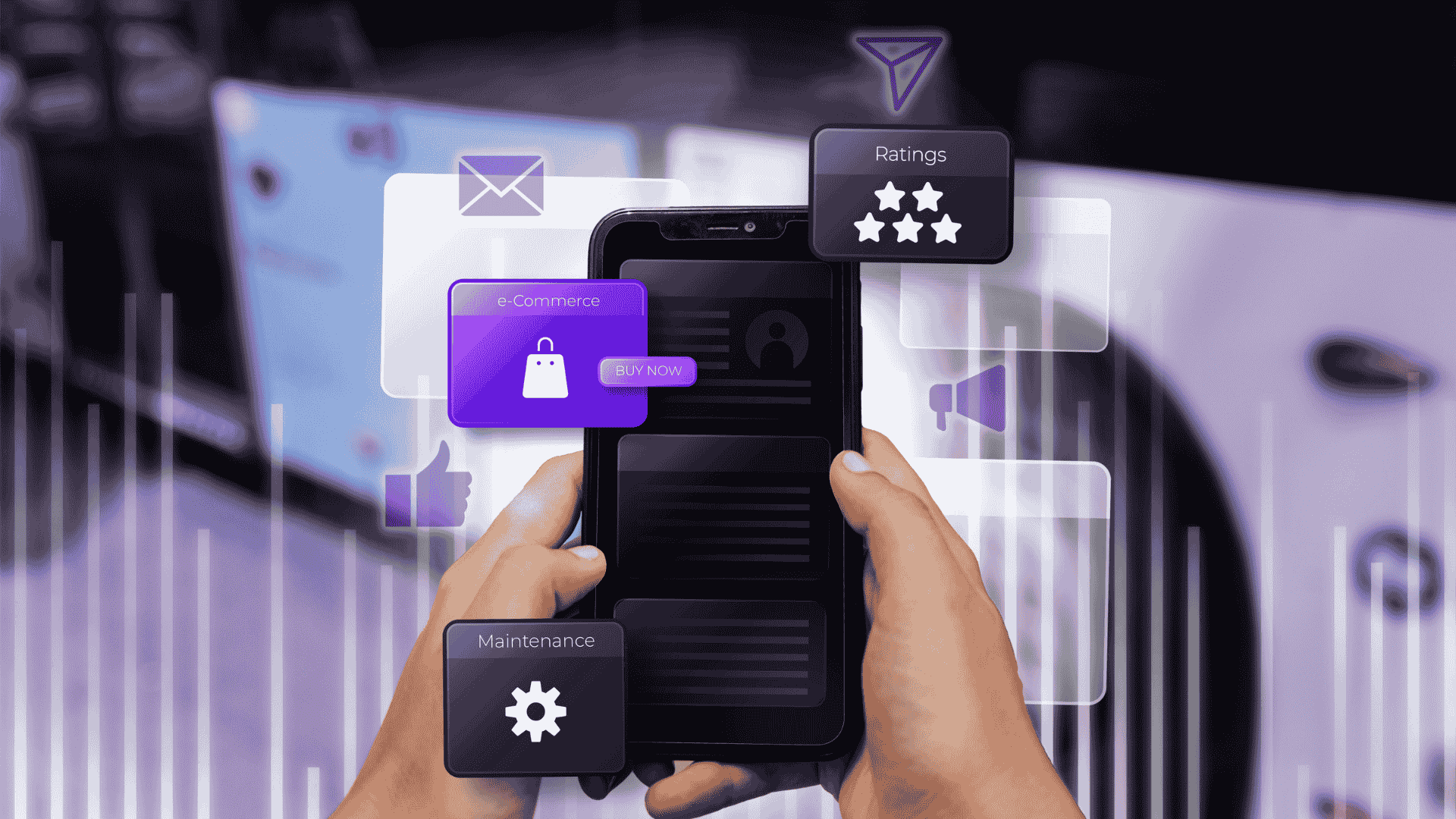Mobile apps have become an integral part of our daily lives. Not only us but nowadays businesses strongly rely on mobile app development services. It is a booming industry that offers various opportunities for businesses in 2024.
Mobile applications help your company reach customers, evaluate interest, increase revenue, and more. According to the latest report, the global mobile app revenue is expected to touch $935.2 billion by 2024.
This blog aims to shed light on everything you need to know about mobile application development, from what it entails, and its types in the business sector to how you can create custom mobile apps by hiring a reliable software development company.
So, whether you’re a small businessman or a large-scale firm, it’s time to harness the potential of mobile apps and watch your revenue soar.
What is a Mobile App Development Services?
Mobile application development is the activity of creating software applications that run on a mobile device and a typical mobile application. It makes use of a network connection to work with remote computing resources.
Furthermore, this activity of building mobile apps is not only limited to smartphones, tablets, and digital assistants like Android and iOS. Today, both mobile devices and mobile applications have changed the traditional patterns of doing business.
In fact, businesses that have adopted mobile app integration have shown a 25% increase in sales on average.
What are the Types of Mobile Application Development?
There are 4 main categories of mobile application development. Hence each category takes a different way of coding and structuring and is reliable for various types of applications. Below each of them is discussed in detail.
Native Application Development: It means creating an application that is tailored and dedicated to a specific mobile app platform like iOS, or Android. Comparatively, it provides higher user engagement than hybrid apps.
Cross-platform Application Development: It means developing apps that are compatible with and can run on multiple mobile application platforms.
Hybrid App Development: Likewise above categories, you can also create your application here, But unlike other development strategies, here developers build apps using technologies like JavaScript, HTML5, and CSS.
Progressive Web Application (PWA): Alternatively, this application strategy focuses on using web platform technologies, but that provides a user experience like that of a platform-specific app.
6 Steps to the Mobile App Development Process
Despite having creative mobile app ideas, it is harder to implement them practically. Besides this, the process of developing a mobile app can somewhat vary on an individual basis. Below we’ve explored six steps to create a mobile app for Android, iOS, or a PWA from scratch:
Ideation or Discovery:
The first step while creating an app is to think and decide the type of app you need to create. As a mobile app builder, you’ve to generate an idea, choose a simple application, decide its main purpose, and create an outline of the application.
Analysis & Planning:
The second step is about turning your app idea into a workable development project. Therefore you’ve to collect and organize all the details of the new mobile application to create a template for the project.
UX/UI Design:
Next comes user interface and user experience, as both cover the interactive aspects of a mobile app location from the user’s perspective. Thus mobile app designing involves market research, wireframe development, prototype testing, and cross-functional collaboration.
Coding an App:
After mobile app design, it’s time to practically develop the mobile app. However, this step involves the development of both front-end (client side) and back-end (server side) portions of mobile applications. Back-End includes database engines, runtime tools, and routines, While the front end is the interactive interface based on the UI/UX design.
Testing Mobile App:
After the application is built, it undergoes a thorough testing phase to ensure that the app is working in the manner in which it was intended. Besides testing for bugs and glitches, the app is tested for branding, security, compatibility, and user experience.
Deployment & Support:
Finally, the app is ready for deployment. Therefore it is packaged into a file system for download and installation. This package depends on the targeted mobile app platform like iOS, Android, or Windows. After its launch, the developer may offer ongoing software support.
8 Key Factors that Influence Mobile App Development Cost
However, we all know that there’s no fixed price for mobile apps. The true cost of mobile application development services hinges on the following factors:
- Mobile App Complexity & Category (native, web, hybrid, or cross-platform)
- Animation and Design of Application
- Features and Functionalities of Application
- Technologies integrated into the development process
- Application Maintenance
- Level of Security
- Size and developer’s pricing model in the app development team
- Mobile App Platform
How to Choose the Right Mobile App Development Service?
A careful selection of mobile app development services is crucial if you want to build a mobile app that not only disrupts the market but also draws a sizable user base. Before going further, let’s delve into some of the potential ways to select the right mobile app development:
- Determine your app development needs
- Search for mobile app development companies
- Evaluate portfolios, skills, and expertise
- Analyze the brand’s reputation and customer feedback
- Take into account the budget
- Assess the app development process
- Align with your vision
- Look for a company that follows a collaboration approach
- Check post-launch support and maintenance
- Organize a consultation session for the final evaluation
Why Choose Us As a Mobile App Development Company?
Integrated IT Solution is the best mobile app development company for many reasons. We provide you with the most suitable mobile application design and development services. Some of our great benefits are listed below:
- Tailored to specific business needs
- Optimized security
- Scalability and Flexibility
- Enhance User Experience
- Competitive Advantage
- Integration with new technologies
- Complete Ownership and control
Final Thoughts
So developing a mobile application is a wise business move. Therefore your business can generate more revenues from the mobile app directly through your monetization or indirectly through enhanced client services, better accessibility, and optimized business processes.
But keep in mind that an app’s success solely lies in the software development process and the right selection of a mobile app developer. Working with an expert professional guarantees an optimum quality product.
Want to learn more? Request a free consultation to chat with one of our dedicated app development experts




